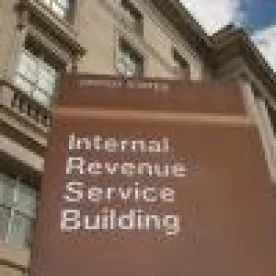On the heels of a government-favorable ruling last year by the U.S. Supreme Court, the IRS announced on February 10, 2015 that it intends to disallow completely all pending refund claims submitted by taxpayers involving employment taxes arising in connection with employee severance payments. This action ends the possibility of refunds for most claimants; however, the IRS identified a small class of claims that may move forward under pre-existing administrative guidance if a taxpayer provides appropriate notice to the IRS.
Prior to 2014, there was a split in the federal circuit courts regarding the application of the Federal Insurance Contributions Act (FICA) tax to certain payments made by companies to terminated employees. In CSX Corp., the Federal Circuit held that severance payments were wages for FICA tax purposes (as well as the Railroad Retirement Tax Act (RRTA)). The Sixth Circuit reached a different result in In re Quality Stores, Inc. and held that particular severance payments that were not tied to receipt of state unemployment insurance did not constitute wages under FICA. Based on the government’s appeal of Quality Stores, the Supreme Court granted certiorari and in a unanimous opinion issued in April 2014, the Court held that supplemental unemployment benefit (SUB) payments, when not tied to state unemployment benefits, were “wages,” and thus taxable.
In Announcement 2015-08, the IRS stated that it was disallowing all pending refund claims involving severance payments with issues covered by the Supreme Court’s Quality Stores decision. This encompasses all refund claims held in suspense by the IRS during the Supreme Court’s consideration of Quality Stores, as well as claims filed by taxpayers within the Sixth Circuit in reliance on that court’s taxpayer-favorable appellate opinion. The IRS’s denial of refund covers claims involving FICA, RRTA and FUTA taxes.
In addition, the IRS stated that IRS Appeals will not act on pending appeals of disallowed refund claims that involve this subject.
However, the IRS identified a narrow set of refund claims that may move forward under pre-existing administrative guidance involving the receipt by employees of state unemployment insurance payments. In Rev. Rul. 90-72, the IRS ruled that SUB pay (which are amounts meant to supplement state unemployment compensation) paid in addition to state unemployment compensation is excludable from the definition of wages for FICA tax purposes as long as it is not received by an employee in a lump sum. This outcome is consistent with Rev. Rul. 56-249, which provided a limited exception from the definition of wages for FICA of “certain payments made upon the involuntary separation of an employee from the service of the employer, but only if the payments are designed to supplement the receipt of state unemployment compensation.”
Because the Supreme Court did not squarely address the validity of Rev. Rul. 90-72 in its Quality Stores opinion, the IRS said that the ruling continues to be in effect. Consequently, taxpayers who made payments covered by Rev. Rul. 90-72 can affirmatively inform the IRS of that fact and obtain information on how to proceed with an appeal. Certain appeals of refund denials may also go forward, the IRS stated, if the claim is premised on a factual basis other than being a severance payment (e.g., FICA tax was paid on certain fringe benefits). In order to take advantage of these exceptions, taxpayers must take affirmative action by providing notice to the IRS of their intention to move forward with the refund claim or appeal in order to receive instructions on how to proceed.
This Announcement potentially affects a significant number of business taxpayers. Prior to the Supreme Court’s decision in Quality Stores, more than 3,000 companies filed protective refund claims with the IRS covering FICA, FUTA and RRTA taxes paid on severance payments. Because the IRS’s default position is that all refund claims are denied and appeals will be ignored, taxpayers must carefully analyze their claims to ascertain if they fall within the Rev. Rul. 90-72 exception or have additional basis for an appeal of a disallowed refund claim.
Taxpayers must file a refund suit in federal court within two years of a disallowed claim, and an appeal does not toll that period, so a timely review is necessary to ensure legitimate refund claims are not unintentionally foreclosed.



 />i
/>i

